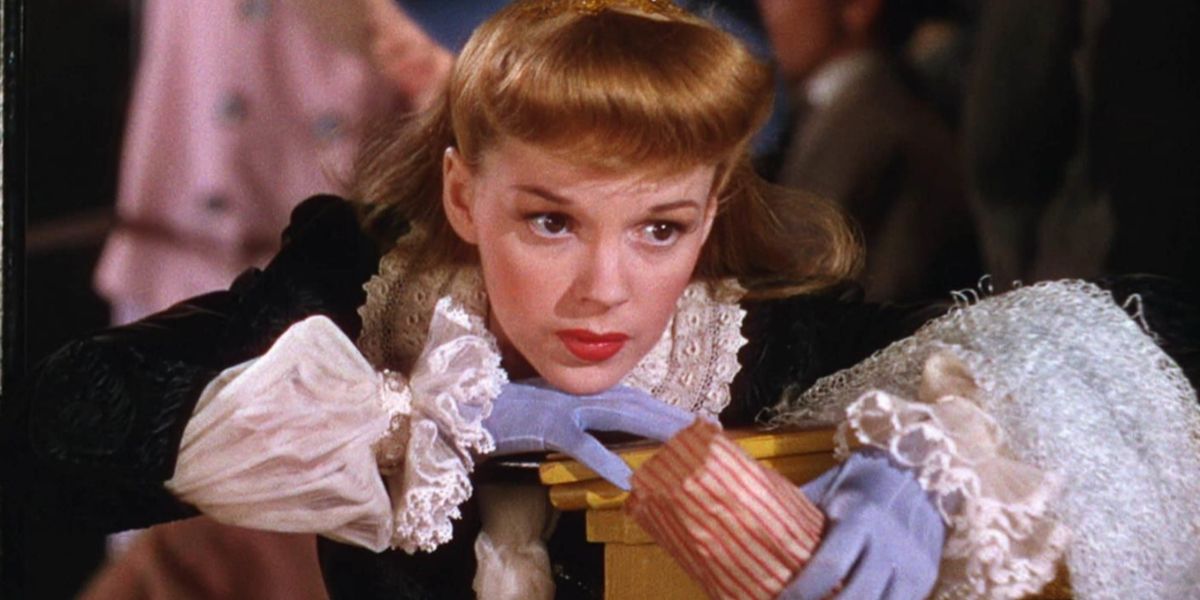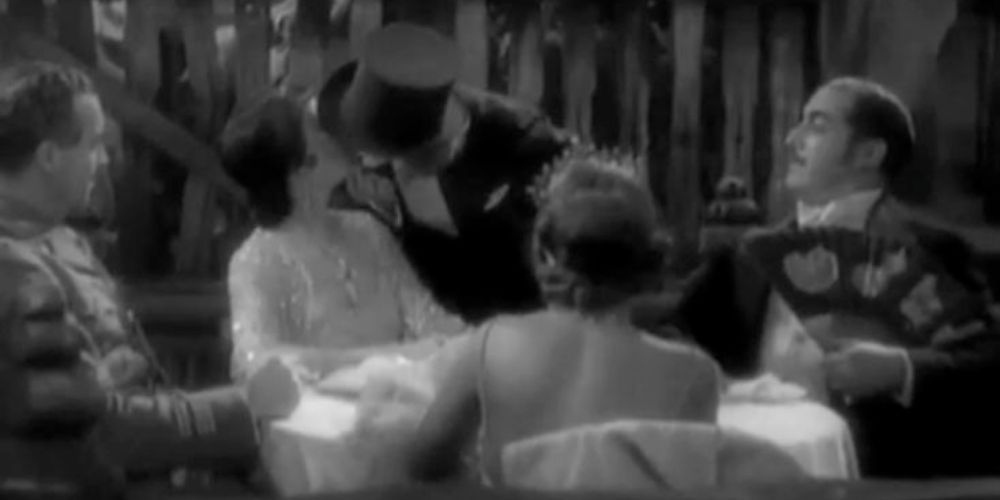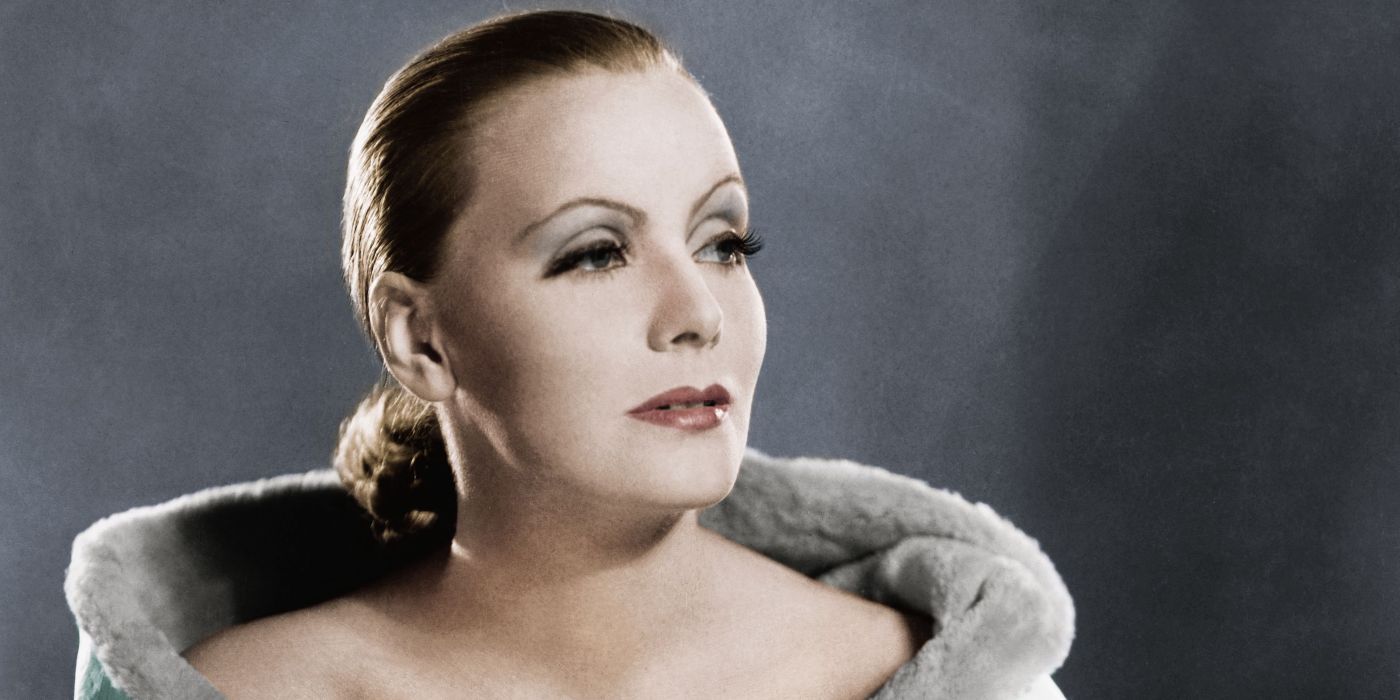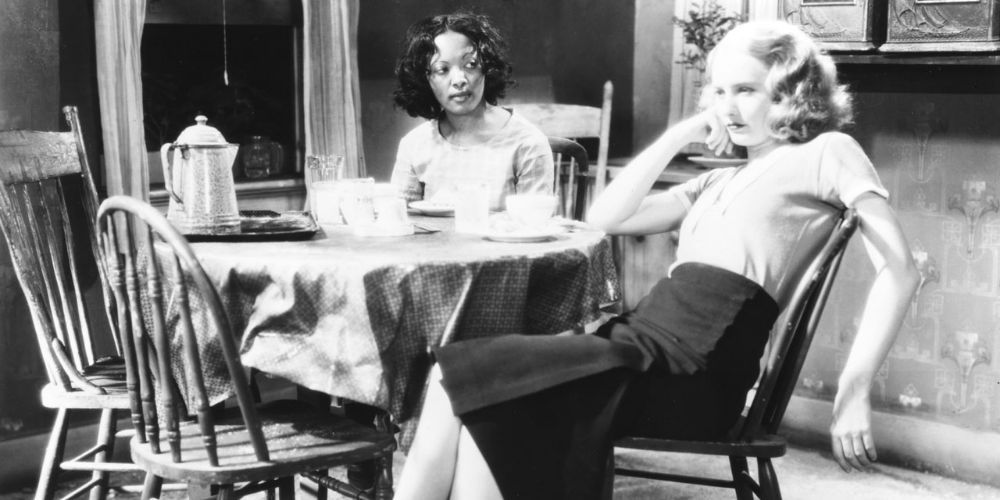In March 2024, the Oscars will host its 96th awards ceremony, honoring the best that cinema had to offer in 2023. The nominees for the 96th Academy Awards feature a mixture of legendary figures with up-and-coming newcomers looking to commence their cinematic legacies. Seasoned veterans such as Martin Scorsese and Jodie Foster look to add more trophies to their cases, while first-time nominees such as Cillian Murphy and Lily Gladstone hope to enter the pantheon of Academy Award winners.
When examining the history of the Oscars, it becomes pretty evident that the Academy has its favorites. Case in point, Meryl Streep has accumulated 21 acting Academy Award nominations with three wins. That is nine more nominations than the next closest performer. Streep is one of cinema’s greatest stars and her nominations are well deserved. However, the excessive praise aimed at actors such as Streep seems superfluous when considering all-time greats such as Barbara Stanwyck, Greta Garbo, and Marlene Dietrich never won an Academy Award.
10 Thelma Ritter Is The Most Nominated Supporting Actress In History
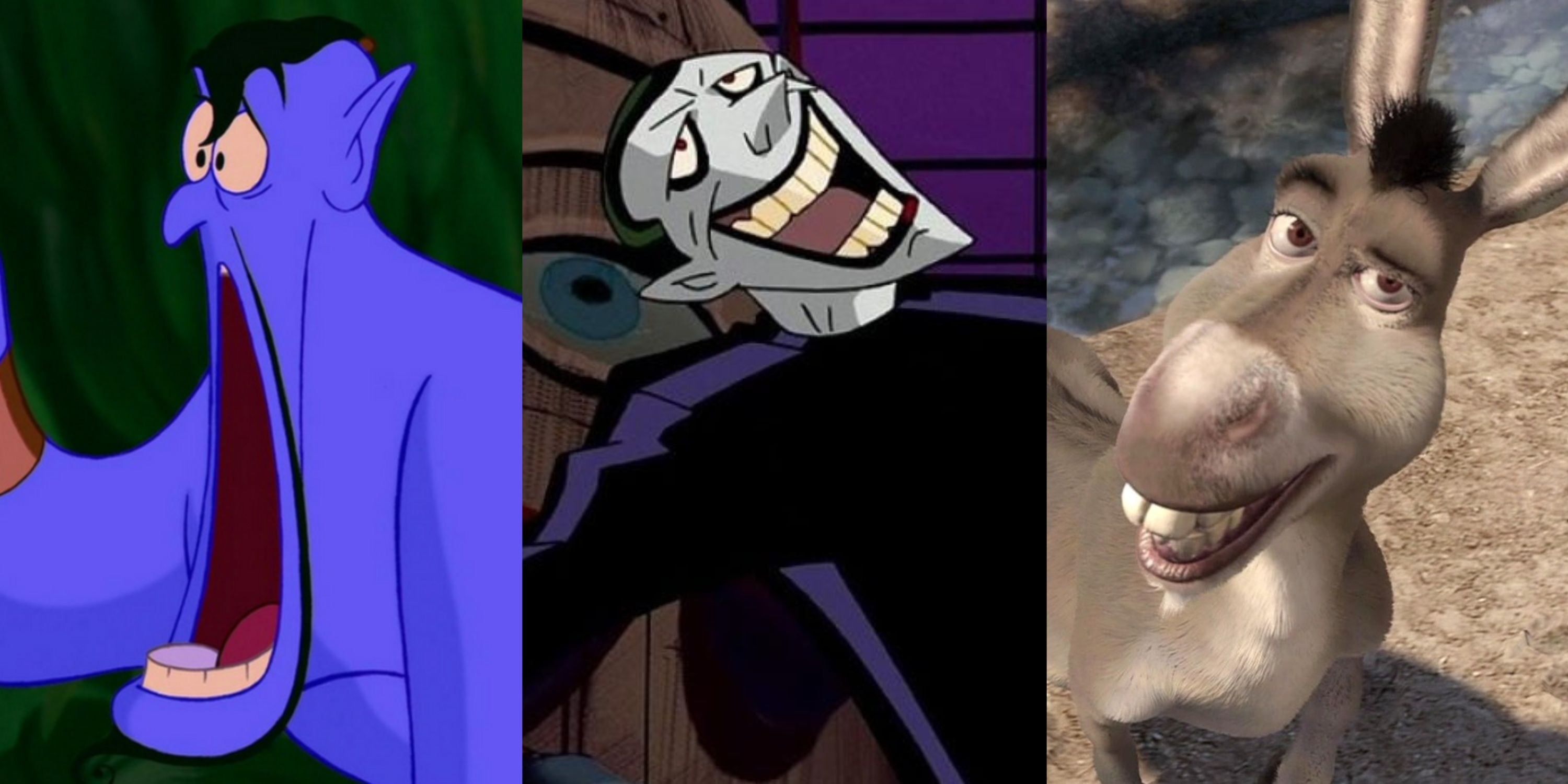
10 Greatest Voice Acting Performances In Animated Movies
From Robin Williams’ Genie to Mark Hamill’s Joker, animation is full of outstanding performances that never seem to get their due.
Born in Brooklyn in 1902, Thelma Ritter is a New York acting icon. Known for her heavy New York accent and tough, wise-cracking working-class roles, Ritter was among the best character actors of the 1950s and 1960s. Ritter began her career working in theater and made her feature film debut in the 1947 holiday classic Miracle on 34th Street. Following several more minor roles throughout the remainder of the 1940s, Ritter struck gold in 1950 with her breakthrough performance in All About Eve, which earned Ritter her first Academy Award nomination for Best Actress in a Supporting Role.
Between 1952 and 1963, Ritter collected five more Oscar nominations for Best Actress in a Supporting Role, making her the most nominated performer, male or female, in a supporting acting category. Despite giving memorable performances in films such as Pickup on South Street, Pillow Talk, and Birdman of Alcatraz, Ritter failed to win any of her Oscar nominations. In addition to her six Academy Award nominations, Ritter received three Golden Globe Award nominations, an Emmy Award nomination, and seven Laurel Award nominations. Ritter did not win any of these nominations. The only major award win for Ritter came in 1958 when she won the Tony Award for Best Actress in a Musical for New Girl in Town.
9 Amy Adams Is Equally Superb As Both A Leading Lady And A Supporting Actor
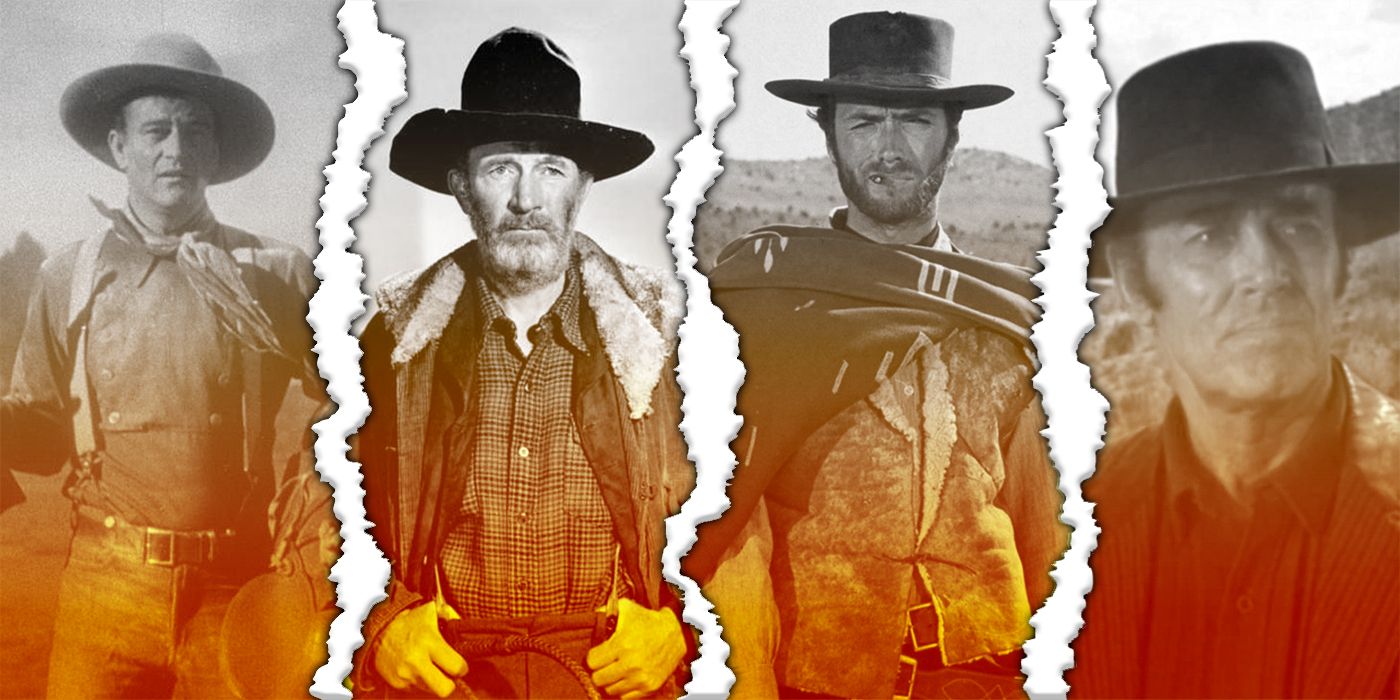
10 Greatest Stars Of The Western Genre
The Western genre is one of the most beloved genres of older cinema. While modern Westerns are great, its hard to compare to some classic stars.
Although now one of the highest-paid actresses in the world, Amy Adams’ career had humble beginnings. In the mid-1990s, Adams started her career in dinner theater, where she would serve as a waitress and then get on stage to perform. By the late 1990s, Adams broke into the film industry with a supporting role in Drop Dead Gorgeous. Following a supporting role in Steven Spielberg’s Catch Me If You Can, Adam’s career truly took off after her performance in Junebug. Adams’ remarkable performance led to an Academy Award nomination for Best Performance by an Actress in a Supporting Role.
Throughout the 2010s, Adams emerged as one of Hollywood’s elite stars, excelling in both leading and supporting roles. Adams has amassed six total Oscar nominations, five for Best Performance by an Actress in a Supporting Role and one for Best Performance by an Actress in a Leading Role. Among Adams’ most well-known films are Enchanted, Doubt, The Fighter, The Master, American Hustle, and Arrival. With over 320 award nominations and 75 wins from around the world, it is hard to understand how Adams has yet to win an Academy Award.
8 Glenn Close Has The Most Oscar Nominations In Acting Categories Without A Win
Glenn Close has one of the most impressive resumes in the history of American entertainment. For her work in film, television, and theater, Close has won three Golden Globe Awards, three Emmy Awards, and three Tony Awards. A member of the American Theater Hall of Fame, Close placed among Time magazine’s 100 most influential people in the world in 2019. Her film credits include numerous fantastic performances in movies such as The Big Chill, The Natural, Fatal Attraction, Dangerous Liaisons, and Reversal of Fortune.
However, the most blatant missing component to Close’s resume is an Academy Award win. Throughout her nearly 50-year career in cinema, Close garnered eight Oscar nominations, four for Best Actress in a Supporting Role and four for Best Actress in a Leading Role. Close’s eight Oscar nominations tie her with Peter O’Toole as the most nominated actor to have never won an Academy Award. For her role in the 2017 film The Wife, Close appeared to be the frontrunner for Best Performance by an Actress in a Leading Role. Ultimately though, Olivia Colman pulled off the upset victory, winning for her performance in Yorgos Lanthimos’ The Favourite.
7 Irene Dunne Is One Of The Golden Era’s Most Overlooked Stars
Gifted with an operatic voice, Irene Dunne dreamed of working for the Metropolitan Opera Company, however, the company rejected her audition, sending her instead to Broadway. A talent scout for RKO Pictures signed Dunne to a contract following her performance in Show Boat, jump-starting one of the most successful Hollywood careers of the 1930s and 1940s. A performer of great range, Dunne gave stellar performances in musicals such as the 1936 film adaptation of Show Boat, screwball comedies such as The Awful Truth, and dramas such as I Remember Mama.
For Cimarron, Dunne earned her first Academy Award nomination for Best Actress in a Leading Role in only her second feature film appearance. Dunne would eventually receive four more Oscar nominations throughout her career, however, she never managed to win. Over the years, Dunne’s work seems to have become mostly forgotten. Some speculate this is due to eleven of her films undergoing remakes, with many unaware of her original performances in films such as Love Affair and My Favorite Wife.
6 Deborah Kerr’s Six Oscar Nominations Resulted In Zero Wins
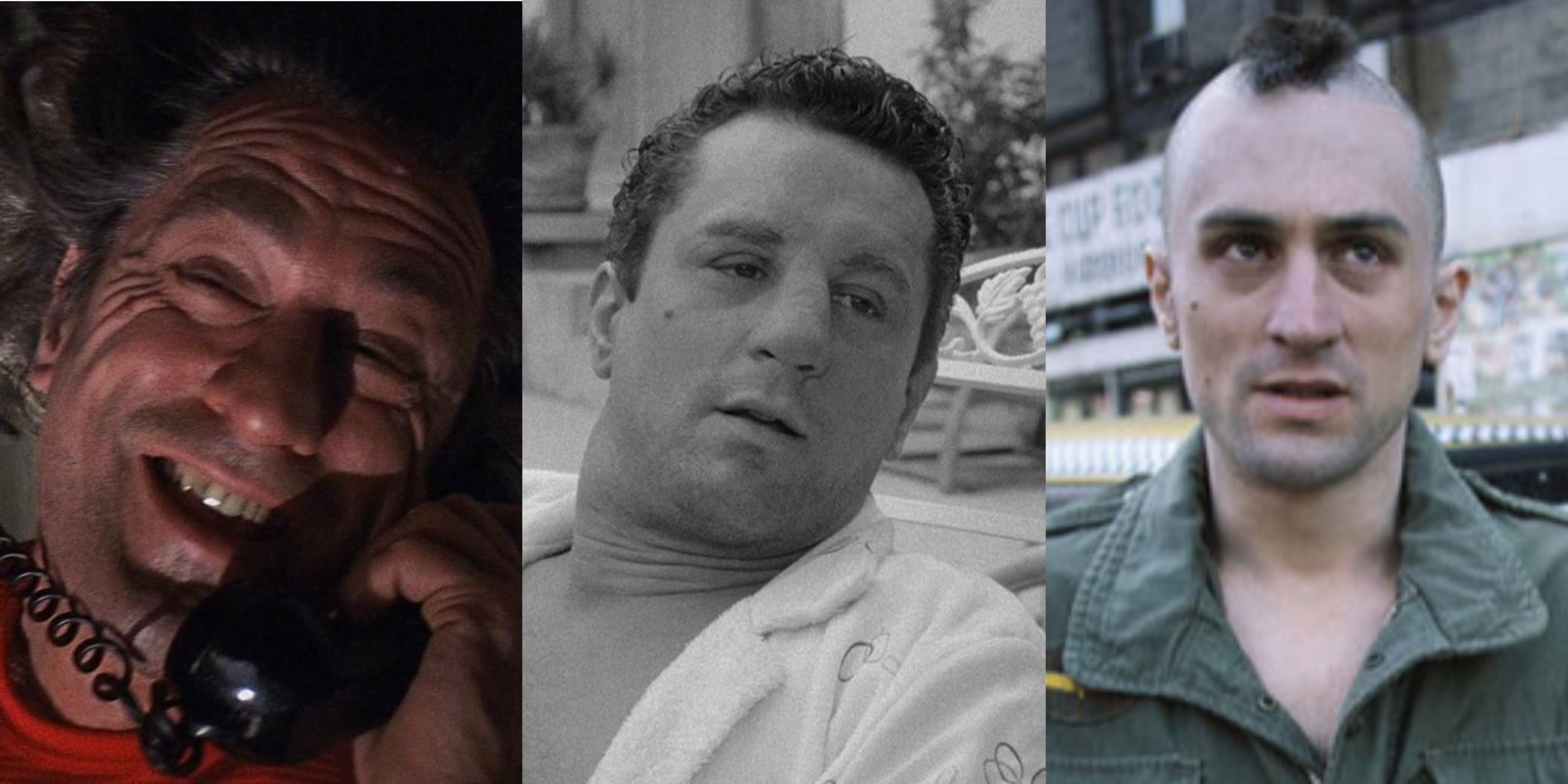
10 Outrageous Robert De Niro Method Acting Stories
Robert De Niro’s preparations for films such as Cape Fear, Raging Bull, and Taxi Driver demonstrate the dedication of method actors.
Scottish-born British actress Deborah Kerr mapped out an outstanding international film career that found tremendous success in both Hollywood and British cinema. After beginning her career in theater, Kerr transitioned to film in the early 1940s, starring in the renowned Michael Powell and Emeric Pressburger films The Life and Death of Colonel Blimp and Black Narcissus. By the late 1940s, Hollywood came calling, resulting in Kerr coming to America and becoming one of the most acclaimed actresses of the 1950s.
Between 1950 and 1961, Kerr racked up six Academy Award nominations for Best Actress in a Leading Role. Some of her best-known works from this period include From Here to Eternity, The King and I, Heaven Knows, Mr. Allison, and An Affair to Remember, the latter of which she did not earn an Oscar nomination despite it being one of her signature performances. Kerr did win several major awards in her lifetime, including a Golden Globe Award for Best Actress – Comedy or Musical for The King and I. She also was a three-time winner of the New York Film Critics Circle Award for Best Actress. Late in her career, Kerr left the film industry to focus on theater and television roles.
5 Judy Garland Went From Child Star To One Of The Most Popular Entertainers Of The Twentieth Century
By the time she was six years old, Judy Garland’s entertainment career had already begun. During the late 1920s and early 1930s, Garland, along with her two sisters, toured the vaudeville circuit as “The Gumm Sisters.” In 1935, Louis B. Mayer signed Garland to a contract at MGM and before long, she found success in supporting roles in several Mickey Rooney movies. Garland’s career forever changed in 1939 when she starred as Dorothy Gale in The Wizard of Oz, one of the most beloved films in history.
Throughout the 1940s and early 1950s, Garland continued to deliver phenomenal performances in musicals such as Meet Me in St. Louis, Easter Parade, and Summer Stock. Due to abuse stemming from her childhood, Garland battled several addictions and suffered a career decline in the early 1950s. Garland’s comeback film was A Star Is Born, which earned Garland her first and only Oscar nomination for Best Actress in a Leading Role. Garland’s loss to Grace Kelly remains one of the worst decisions in the history of the Academy Awards. Toward the end of her career, Garland received a second Oscar nomination for her supporting role in Judgment at Nuremberg. Tragically, Garland passed away in 1969 at the age of 47. The American Film Institute placed Garland eighth on their list of 100 Years…100 Stars.
4 Marilyn Monroe Never Got The Credit She Deserved As An Actress
Marilyn Monroe’s film career got off to a rocky start, with over a dozen appearances in minor and supporting roles between 1947 and 1951. By 1952, Monroe started getting meatier roles and, in 1953, she exploded in popularity after starring in three now iconic films, Niagara, Gentlemen Prefer Blondes, and How to Marry a Millionaire. For the remainder of her career, Monroe arguably was the most popular actress in the world.
At the peak of her popularity and to this day, many question Monroe’s acting ability. Those who call Monroe an inferior talent fail to recognize the difficulty of comedic acting. More so today than in years past, comedic acting typically never receives major award consideration when, in reality, it is more challenging to make someone laugh than to cry. Monroe won a Golden Globe Award for her performance in Some Like It Hot and a Laurel Award for her role in The Seven Year Itch. Sadly, however, the Academy Awards never even nominated Monroe for any of her numerous unforgettable performances. In 1999, the American Film Institute ranked Monroe the sixth-greatest female star of Hollywood’s Golden Era. Monroe’s premature death in 1962 at the age of 36 cut short one of cinema’s most legendary careers.
3 Marlene Dietrich Is One Of Cinema’s Greatest Femme Fatales
During the 1920s, Marlene Dietrich worked on both the stage in Berlin and appeared in German silent movies. She particularly showed prominence in musicals. She rose to international fame following her performance in Josef von Sternberg’s The Blue Angel, Germany’s first feature-length sound film. Dietrich’s dazzling performance as Lola Lola is among the earliest and most influential femme fatale roles in cinema. The success of The Blue Angel landed Dietrich a Hollywood contract with Paramount Pictures.
In Hollywood, Dietrich and von Sternberg made six films together throughout the 1930s. Their first Hollywood collaboration, Morocco, resulted in Dietrich’s only Academy Award nomination for Best Actress in a Leading Role. Following the end of her partnership with von Sternberg, Dietrich would go on to give award-worthy performances in countless classic films such as Desire, Destry Rides Again, Witness for the Prosecution, and Touch of Evil. Despite these renowned performances, Dietrich finished her career with no Oscar victories. The American Film Institute voted Dietrich the ninth-best female star of Hollywood’s Golden Era.
2 Greta Garbo Just Wanted To Be Alone
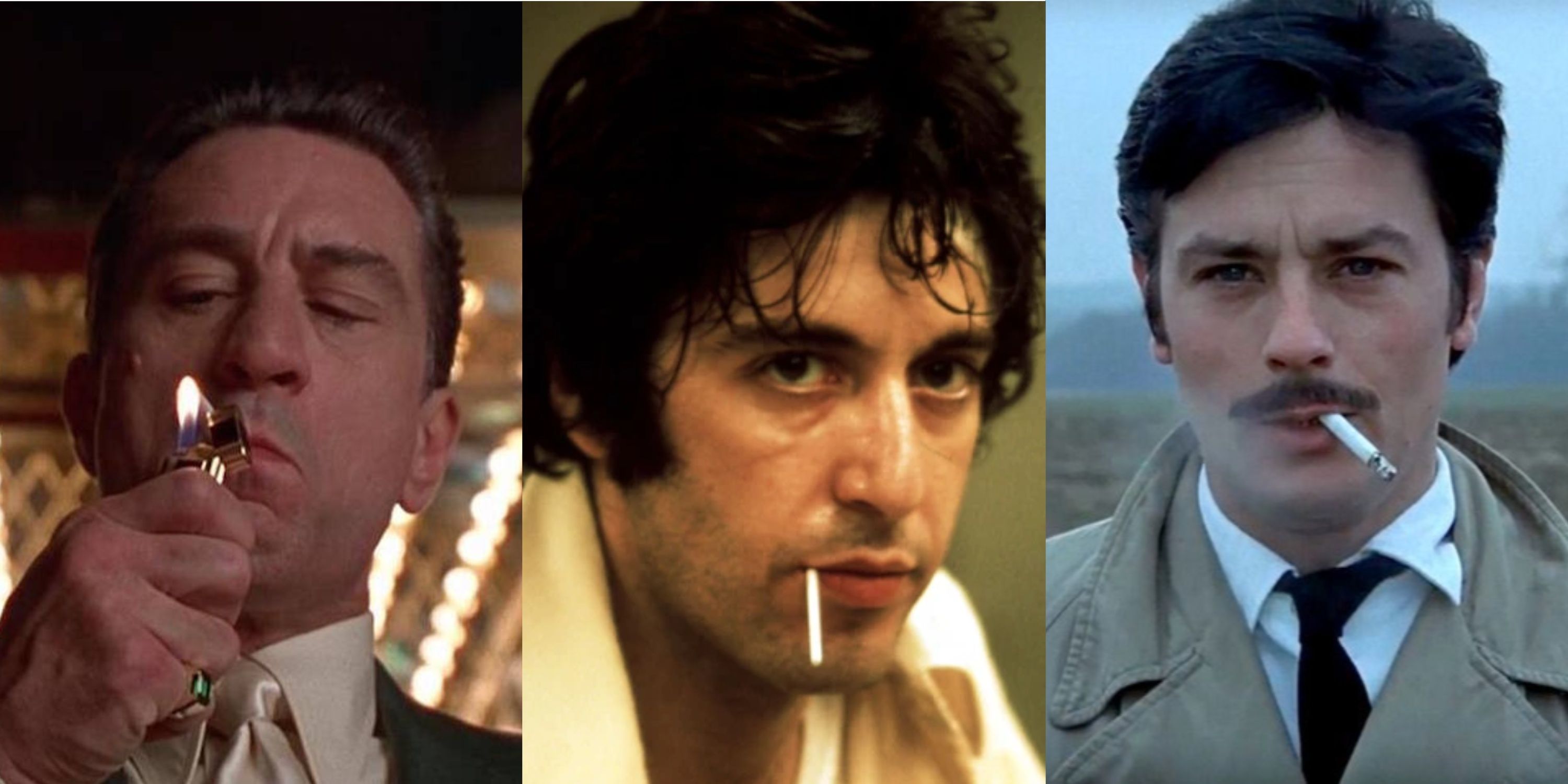
10 Greatest Crime Drama Actors, Ranked
Actors such as Al Pacino, Humphrey Bogart, and James Cagney became legends due to their iconic roles in countless classic crime dramas.
One of Hollywood’s most enigmatic stars, Greta Garbo is one of the few silent film stars who had an even more successful career in the sound era. During the silent era, Garbo worked in Sweden, Germany, and Hollywood. Notable Garbo films from this time include The Joyless Street, Flesh and the Devil, and A Woman of Affairs. In 1930, Garbo transitioned to sound films with the movie Anna Christie. MGM famously used the marketing slogan “Garbo Talks!” to promote the film.
For her first two sound performances, Anna Christie and Romance, Garbo earned Academy Award nominations for Best Actress in a Leading Role. Garbo’s two signature roles in Camille and Ninotchka also resulted in Oscar nominations, but, despite four total Academy Award nominations, Garbo never won. Garbo getting shut out by the Academy Awards is especially ironic considering Garbo won Best Acting awards from the National Board of Review three times. In 1941, at the height of her career and only 36 years old, Garbo retired from acting and stepped away from the limelight. Many now point to Garbo’s famous line in Grand Hotel, “I want to be alone,” as a phrase that encapsulates the star’s reclusive personality. Garbo finished fifth on the American Film Institute’s list of the greatest female Golden Era stars.
1 Barbara Stanwyck Is The Greatest Actress To Never Win An Oscar
Barbara Stanwyck is the greatest Hollywood actress who never won an Academy Award for acting. Determined, tough, charming, alluring, and hysterical are just a few of many adjectives that describe the characters Stanwyck portrayed on screen in her nearly 60-year career. There was not a single role that was beyond Stanwyck’s abilities as an actor. From endearing screwball comedy leads and devilish femme fatales to ruthless Western landowners and tragic romantic figures, Stanwyck could play any part to the highest degree imaginable.
Stanwyck’s performances in Stella Dallas, Ball of Fire, Double Indemnity, and Sorry, Wrong Number all earned her Academy Award nominations for Best Actress in a Leading Role, yet none of these Oscar nominations resulted in a win. Late in her career, Stanwyck successfully transitioned to television where she won a Golden Globe Award and three Emmy Awards. Pauline Kael called Stanwyck an “amazing vernacular actress” who possessed a “remarkable modernism.” The American Film Institute named Stanwyck the eleventh greatest female star of Hollywood’s Golden Era.

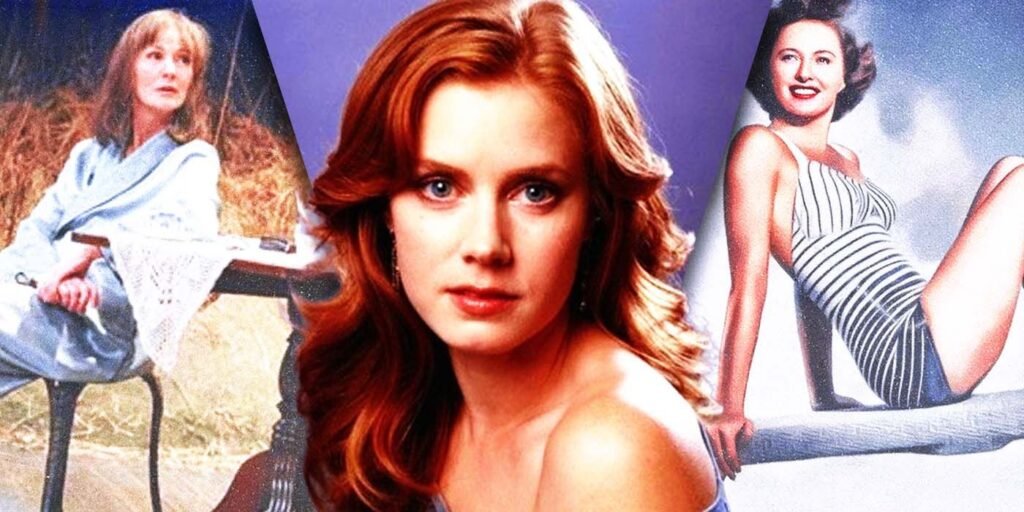
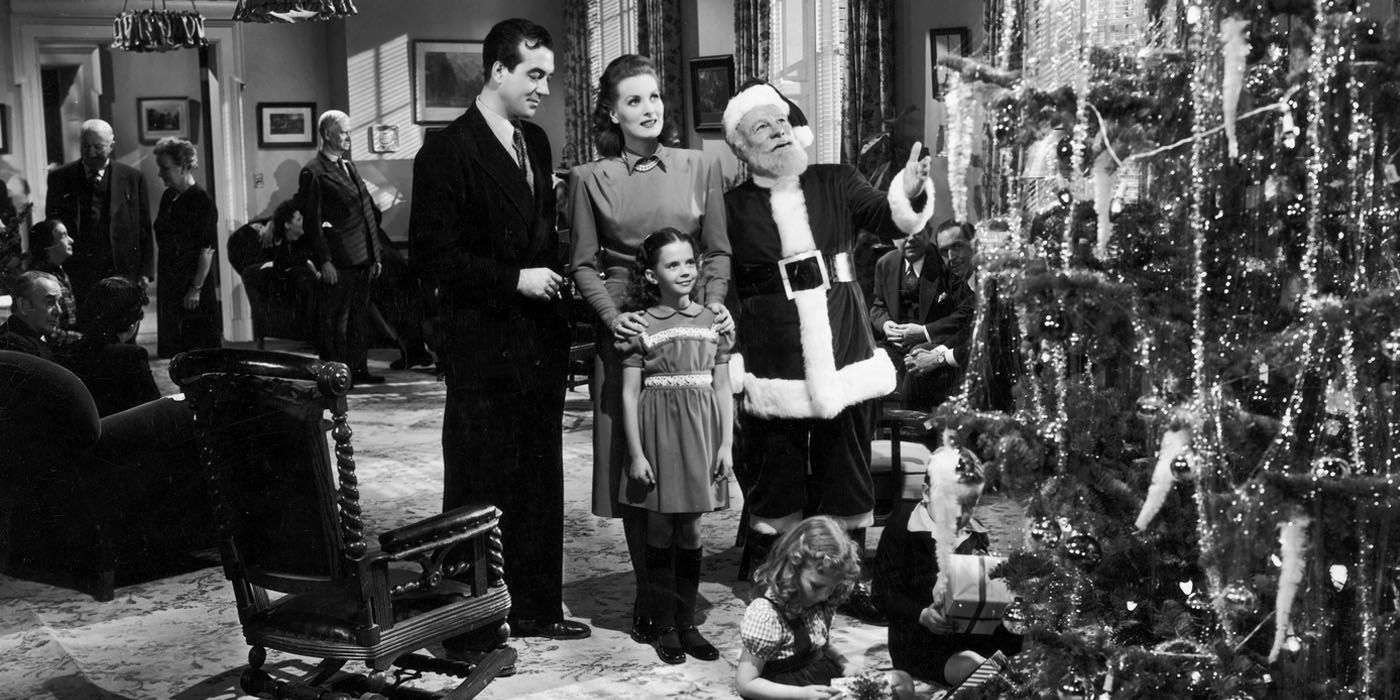
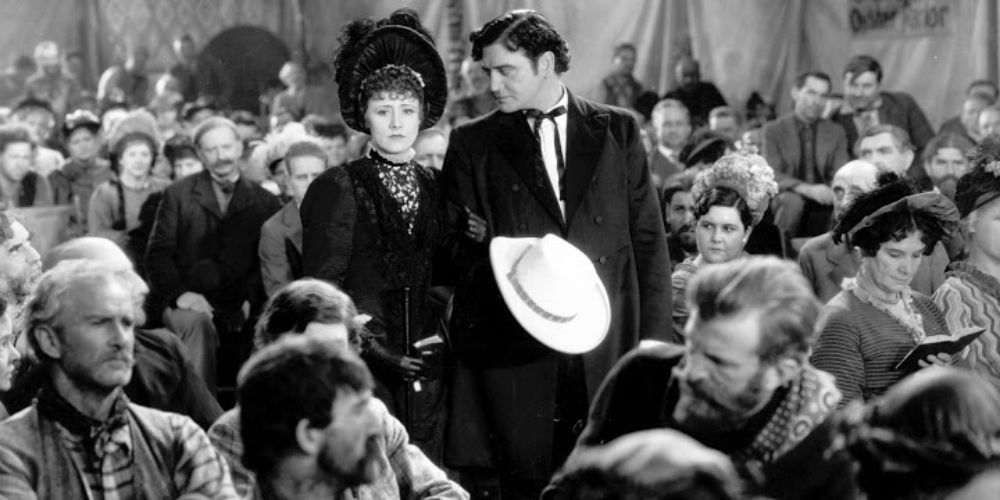
.jpg)
